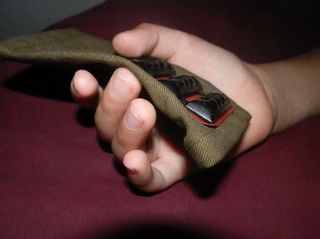
My son is lying in bed in his room now, sleeping. When he sleeps, he looks different, both younger and older than he really is, like many children do when they sleep. His hair is damp; he had a fever today, and I had to change his shirt after he had fallen asleep. Watching a beautiful child sleep, you realize that what you really want to do is to take him in your arms, hold him and carry him with you wherever you go. But you have to let go; he needs his rest. Tomorrow we'll go to the doctor.
Just before bed time, after we read The Lamb Who Came to Dinner, a fantastic book by Steve Smallman and Joelle Dreide, I asked Tal, who has been writing short, beautiful stories since he was about 4 years old, whether he wanted to be an author when he grew up. Tal smiled, delighted, and said he wanted to be an author and a cook (he doesn't know about Master Chef -- for him, a person who prepares food is a cook). "Sure, you can be both," I assured him, "feed the body and the soul".
That little back and forth reminded me of my first encounter with other parents of autistic children and their expectations of their children's future.
The first doctor who diagnosed Tal was a child development pediatrician. We had a few sessions with her, a speech therapist and a social worker. The doctor gave the diagnosis half-heartedly, saying she wanted to first run more tests and observations, but I put my foot down and demanded a straight answer. I sat in front of her, pale as a ghost, I imagine, nodding, trying to take it all in.
After she dropped the A-bomb on me, telling me she suspected Tal had autism, she said, "I want you to get a second opinion." That very moment, and later again, I felt grateful for that advice. What she actually told me was nothing is absolute, there is no one right thing to do. I realized how true it was over and over again when I was considering what roads to take that would be good for my son and me.
I asked the pediatrician what kind of a second opinion I should seek, and she told me to find a psychiatrist or a child neurologist -- these are two types of specialists who diagnose and treat children with autism. Hearing the word psychiatrist in the context of my son's health was nerve-wracking, but I made an appointment for the next day.
The psychiatrist was an intense, no-nonsense woman with whom I had a good rapport, because in situations of great stress and extreme possible outcomes, I work better on a cerebral level. I needed her practicality, because I was in survival mode. I went to meet her with my sister -- another amazingly practical woman -- and the first question the doctor had for me was, "Are you willing to get your son into special education if he is, indeed, diagnosed with PDD"?
My sister was curious to know if there were parents who objected to that and why.
There are many answers to that question, some of them are good and valid, but the answer we got came out of left field. It was something I couldn't forget, because it taught me a valuable lesson. The answer the psychiatrist gave us was that parents -- fathers usually -- fear that the diagnosis will go on their child's permanent record, and that it would prevent their children from going into an elite combat unit when they grow up and enlist in the army.
Yes, army. My country has a mandatory military service. If you are autistic, there's not much chance a combat unit, or any unit, for that matter, would want to enlist you; you'll probably be discharged on medical grounds. In certain cases, people with disabilities can volunteer for service. But the father she mentioned wanted his son to be a Navy Seal type of fighter, which is all good and patriotic, but quite ridiculous, considering the fact that the child in question was 2 years old at the time. Even having flat feet or wearing glasses would disqualify him for that type of service!

Photo: Dafna Maor. Tal holding my captain ranks.
Luckily for me, I am a (reasonable) woman. My sister and I nearly burst out laughing, and I asked where I could sign up for THAT -- I don't know many mothers who dream that one day, their sons will go on heroic, death-defying missions behind enemy lines.
The lesson for me was that sometimes people choose to make life more difficult for themselves even if they don't have to. They go looking for unnecessary challenges to heap on their plates, which are already quite full. More on that in my next post.
Quick message: I live and work in Israel, and I realize that many of the readers here are American or European or from other places around the world. There are cultural and technical differences that might pop out in my posts. I urge you to send any question you have -- email me or comment here -- and I promise to answer, barring time zone differences, as quickly as possible. Having said that, I think that love, parenting and caring are hugely universal; so this is a fantastic way of bridging over geographical distances.